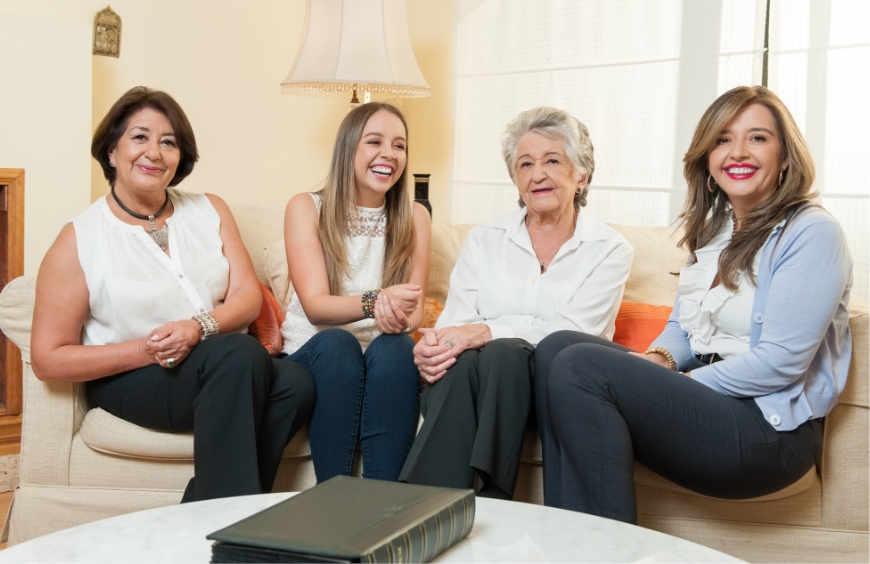Pandemic Perspectives: Alexandra Cain
With classrooms eerily empty and playgrounds deserted, school principals are looking forward to a time when children can return to their schools. While most kids have by now adapted to online learning, schools offer so much that can’t easily be replicated at home.

“School is more than book learning. All the social aspects that come with schools are much more difficult to replicate in an online environment, even though teachers are doing an incredible job,” says Susan Middlebrook, Tara Anglican School for Girls’ principal.
“The kids are missing their friends. There's also a lot of learning that comes from playing, which they’re not getting at the moment. Even breaking up the day with all the different physical activities schools offer is much more difficult for parents to manage at home, whereas we're set up for that,” she adds.
While the pandemic has its privations, many positives have also come out of it for schools, especially for online learning, aspects of which will continue into the future.
“Student and teachers have enjoyed the flexibility that comes with online learning. It also helps teachers to differentiate learning. I’m amazed at how the teachers have responded. They have not been able to stand up in front of the girls and talk with them in the way they normally do. So they have had to find other ways to approach learning,” says Middlebrook.
“It’s true online learning is tough for some, and our teachers spend so much time supporting these kids. But particularly for the clever possums, there's a lot of freedom that comes with online learning that really encourages their potential,” she says.
PLC Sydney principal Dr Paul Burgis says he expects future educational models will be systematised. “We imagine education as being a program that delivers learning in an equitable manner. It may employ more online technology, or it may rebel against the use of remote systems and celebrate face-to-face learning.”
School is more than book learning. All the social aspects that come with schools are much more difficult to replicate in an online environment, even though teachers are doing an incredible job...
Susan Middlebrook, Tara Anglican School for Girls’ principal
Commenting on the future of education, he says different stakeholders have different perspectives. “Our community wants our students to be ready to enter a rapidly-changing world. Artificial intelligence, automation and disruptive business practices are making us rethink the courses we need in schools. At the same time, businesses highly value students with strong public speaking skills, the ability to think on their feet, the capacity to work hard and the ability to relate well to a large number of people in empathic and ethical ways.” Burgis says recent focus on contemporary skills, such as learning how to learn, think critically, collaborate and problem solve, has led some commentators to call for a less crowded curricula with an emphasis on skills not content.
“The drive for schools to replace a fixed mindset, where the student is counted as more intelligent or less intelligent, with a growth-mindset, with emphasis on the learning trajectory of each child, is increasingly popular.” He notes some universities are also starting to move away from the Australian Tertiary Admission Rank as the only means by which to evaluate students for entry into their institutions. Instead, they are setting up early entry programs, through which students submit portfolios for consideration. “They are looking for all-rounded individuals rather than students who perform well in one examination.”
PLC Sydney places great value on local community and personal relationships. “We need face-to-face interaction. We need to recognise our need for human contact. Technology is a support act to education. It can assist us in a crisis, as it has done throughout COVID, and it can enable us to perform specific functions well,” says Burgis.
“Alongside it, we need a deeply human education system that focuses on meaning and on who we are as people. As a Presbyterian college, PLC Sydney strives develop young people who understand themselves and the world and have the capacity to make a contribution,” he adds.
Alongside it, we need a deeply human education system that focuses on meaning and on who we are as people. As a Presbyterian college, PLC Sydney strives develop young people who understand themselves and the world and have the capacity to make a contribution.
PLC Sydney Principal, Dr Paul Burgis
It’s this combination of emotional intelligence, conventional intelligence, appreciation of technology and ability to be adaptable that will provide a firm foundation for the current cohort of students through their lives.
Article by: Alexandra Cain, freelance writer
Originally published in the Australian Financial Review, Sept 2021

Alexandra Cain
Freelance Writer
Alexandra Cain is a Sydney-based finance journalist who has written for all the best local and global business publications, as well as many banks, businesses and industry associations.




